They Obviously are Parasites ..... They have NO Regard for You Or Your Children.... Shut the Door Cut them OFF and let them Do their Worst ...... If your "Friends"?? take their side You have discovered the True level of Your Friendship, They are NOT Really your Friends are they?
YOU Spend YOUR Inheritance on YOU and YOUR Children THAT is what Your Husband would Really Want .. AND YOU KNOW IT .....
My In-Laws Want My Husband’s Money—Now I Need to Protect My Kids
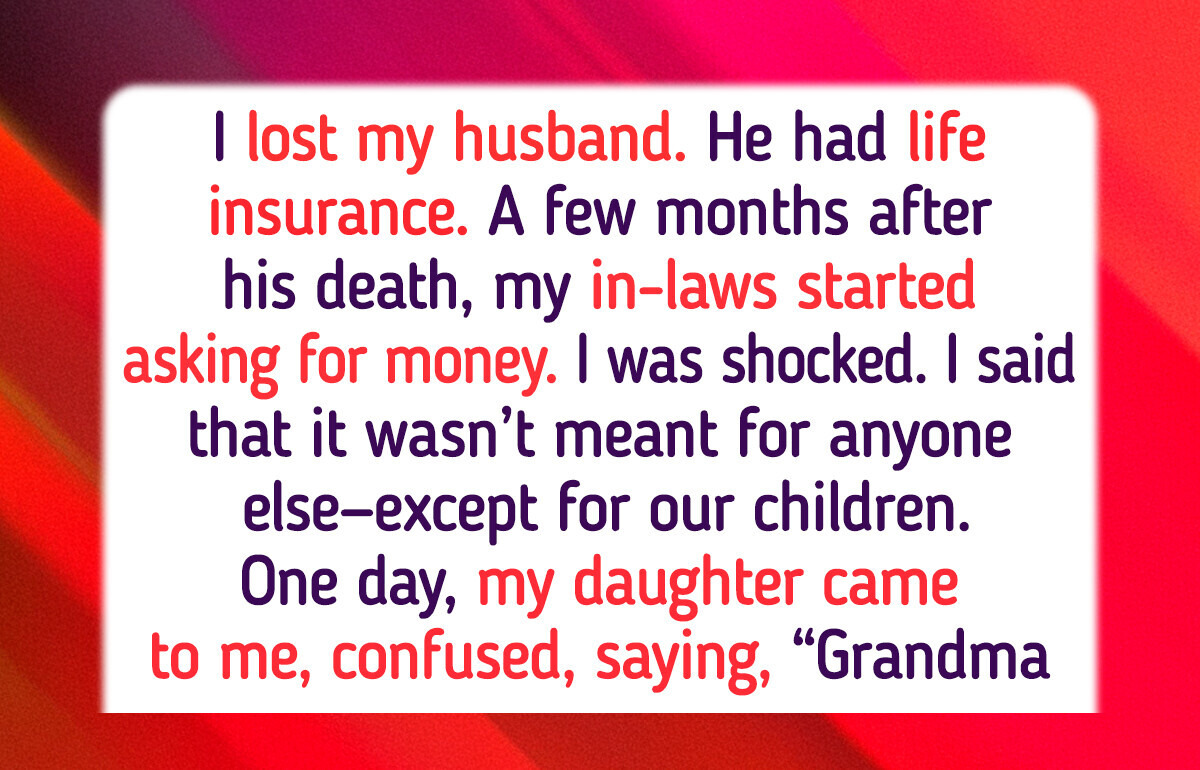
After unexpectedly losing her husband, our reader relied on his life insurance to secure a future for their children—until his family began to demand their “share.” Their approach? Guilt, manipulation, and other inappropriate tactics. Read her story and decide if she’s wrong for standing her ground.
Hello Bright Side,
I lost my husband. One moment, I was living a life full of happiness with my husband and our two kids. The next, everything changed. As painful as it was, I had to gather myself for the sake of our children.
He had substantial life insurance. While it could never bring him back, it provided financial stability, security, and a future for our kids. I made sure to use it wisely—setting up savings for college, covering necessary expenses, and ensuring we wouldn’t face financial hardship. It was his final gift to us, ensuring we would be taken care of. But that’s when his family stepped in.
Initially, it wasn’t direct. A few months after his death, my in-laws started asking for money. My mother-in-law sat me down and said they needed to talk. She and my father-in-law believed I should give a portion of the insurance money to my husband’s grandparents—his mother’s parents. I was shocked.
We hadn’t been close. They barely acknowledged me and didn’t even attend our wedding, claiming it was too far to travel, yet they somehow managed to go on European vacations every year. They had never shown interest in our kids—no birthday cards, no visits. Now, suddenly, they needed help?
Their reasoning? “Your husband and our son would’ve wanted this.” I said the money wasn’t meant for anyone else—except for our children. It was for their future, their well-being. When I explained this, the guilt trips began.
“You’re being selfish,” my mother-in-law accused over the phone one evening. “They’re elderly, they’re struggling! You’re dishonoring your husband’s memory!” Things quickly escalated. My MIL called me cold, greedy, and heartless. She reminded me how my husband’s grandparents were living on a tight budget and that he would never have turned his back on family.
The pressure became unbearable—calls, texts, and even unannounced visits, with my mother-in-law showing up at my door with tear-filled eyes.
But the worst part? She started involving my children. One day, my 6-year-old daughter came to me, confused, saying, “Grandma said we should help great-grandma and grandpa because Daddy would be sad if we didn’t.” That was the tipping point. I wouldn’t let them manipulate my children, too.
I stood firm, but now I feel like a target. My mother-in-law has been spreading rumors, telling other family members that I’m hoarding money while they suffer. Now, I’m being painted as the villain—the widow who refuses to do “the right thing.” Some relatives have even stopped talking to me.
And I can’t help but wonder: If they’re this persistent now, what comes next? Will they try to take legal action? Will they push harder and involve my kids even more? Will they ever stop? So, tell me—am I wrong for protecting my children’s future?
Ella

Dear Ella,
We are so sorry for your loss. The pain of losing a spouse is beyond what most can imagine, and you’re navigating that loss while being the strong foundation your children need. What you’re doing is incredible, even if it feels incredibly tough.
You are absolutely not wrong for wanting to protect your children’s future. Not now, not ever. When your husband took out that life insurance, he did it for you and your children—the ones he loved the most. That money was never meant to be a free-for-all for extended family. Anyone who suggests otherwise is simply trying to take advantage of you.
Your mother-in-law’s actions—guilt-tripping, emotional manipulation, and especially dragging your children into this—are entirely inappropriate. She is not acting in the spirit of love or honoring your husband’s memory. She is exploiting the situation for her own benefit.
Here are some steps you can take:
- Be clear and firm that this conversation is over. No further discussions or negotiations. Any additional attempts to pressure you should be ignored.
- It’s unacceptable for your mother-in-law to involve your child in this. Talk to your kids in an age-appropriate way about boundaries and reassure them that no one—family included—has the right to manipulate them into feeling guilty or responsible for adult issues.
- While it’s unlikely they have any legal claim, it’s a good idea to consult with a lawyer to know your rights and ensure your financial matters are secure. If the situation escalates, legal options like a cease-and-desist order may be necessary.
- You are carrying a heavy load, and you don’t have to carry it alone. Seek out support, whether through close friends, therapy, or a support group for widows.
Family isn’t defined by DNA—it’s defined by love, respect, and care. If these relatives only show up when they want something, they are not acting as family. You don’t owe them anything.
You’re doing the right thing. Don’t let anyone tell you otherwise.
Bright Side
Family drama comes in all forms, but this one crosses the line. This woman’s mother-in-law didn’t just overstep; she barged in and tried to take control. Now, she’s caught in the middle of a family feud, fighting to maintain her boundaries.
Comments
Next time mil calls just start crying and tell you you made a bad investment and lost it all and could she start helping you with your bills.
Related Reads
I Refused to Let My Things Get Stolen at Work—Maybe I Went Too Far
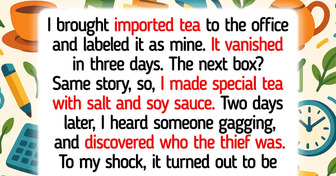
I Closed My Doors to My Entitled In-Laws on the Weekend and I Don’t Regret It
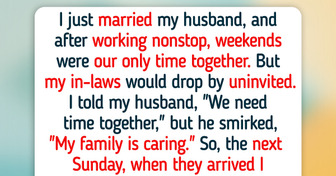
11 Stories That Prove First Love May Be Short, but Leaves a Lasting Mark Forever

I Refused to Pay for Our Valentine’s Dinner—Then I Learned the Heartbreaking Truth

My Family Excluded My Girlfriend From Christmas Because We’re Not Married
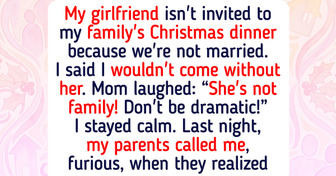
15 Stories That Show Kindness Is a Quiet Language the World Needs
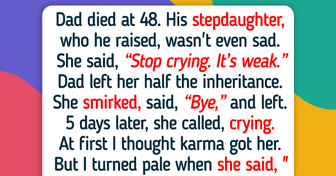
HR Told Me to Be Grateful for Pay That No Longer Covers Rent — Then Reality Hit Harder

I Refuse to Be My Brother’s ATM Anymore—The Revenge He Planned Was Sick
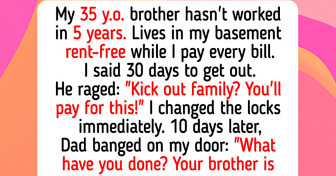
15 Stories That Inspire Us to Choose Kindness, Even If the World Gets Ugly

17 Moments That Remind Us Kindness Is a Choice, Not a Mood

I Lost My Job to “Restructuring” and My Severance Disappeared, Then I Turned the Tables
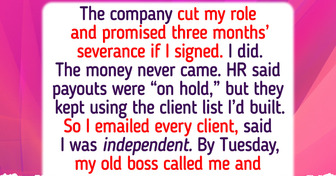
10 Hospital Workers Who Prove Kind Heart Is a Powerful Medicine



